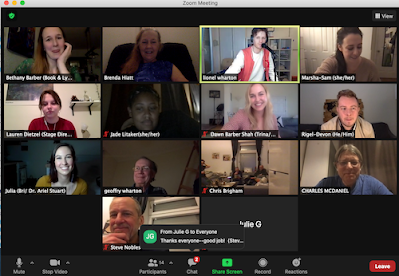Search This Blog
♥ YA Novelists Pushing the Boundaries of the Genre and Writing from the Heart ♥
Posts
Showing posts from February, 2021

Posted by
Dean Gloster
The Light Fun in Starting Over by Dean Gloster
- Get link
- X
- Other Apps

Posted by
Brian Katcher
Blah (Brian Katcher)
- Get link
- X
- Other Apps
Posted by
Laurie Faria Stolarz
New Beginnings
- Get link
- X
- Other Apps

Posted by
Brenda Hiatt
Better late than never! (Brenda Hiatt)
- Get link
- X
- Other Apps

Posted by
Patty Blount
Re-Do by Patty Blount
- Get link
- X
- Other Apps
Posted by
Holly Schindler
New Start, Old Fave (Holly Schindler)
- Get link
- X
- Other Apps

Posted by
Jodi Moore
Reclaiming My Heart by Jodi Moore
- Get link
- X
- Other Apps

Posted by
Kimberly Sabatini
The Journey of My Existence Outside the Line -- By Kimberly Sabatini
- Get link
- X
- Other Apps

Posted by
Mary Strand
New Year, Nu ... tella (Mary Strand)
- Get link
- X
- Other Apps

